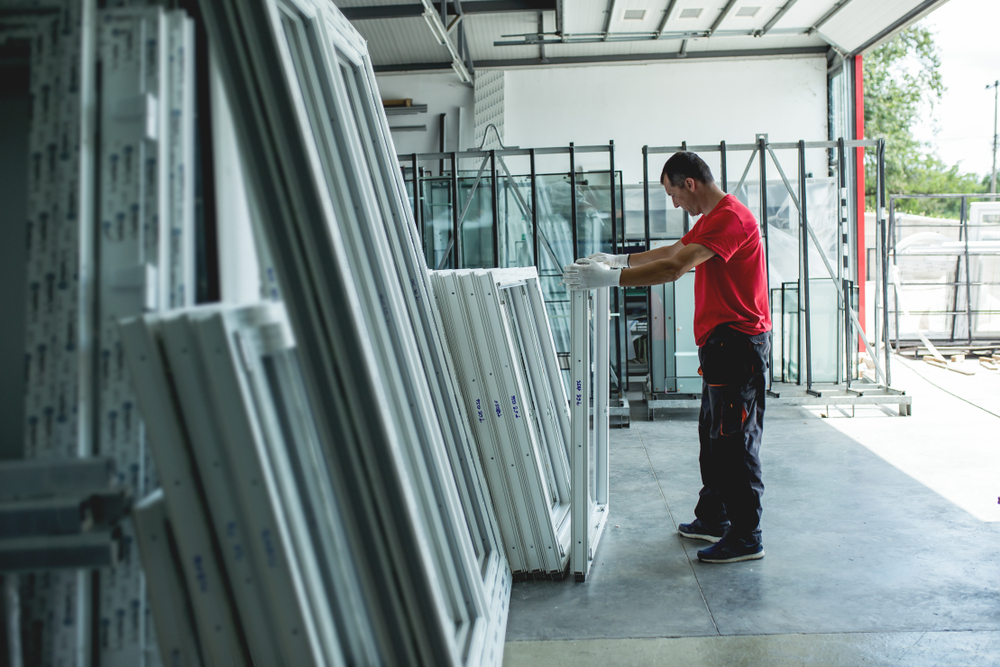Should I Choose Aluminium or uPVC Windows?

Comparing aluminium and uPVC double-glazed windows to help you make an informed choice
Windows and doors are more than decoration or light sources. Nowadays, glass coatings and frame materials play an active role in security, comfort and convenience.
So when investing in double glazing, it pays to choose the best materials.
In this blog, two of the most common window frame types, aluminium and uPVC, go head-to-head to determine which is best.
What is uPVC?
Unplasticised polyvinyl chloride (uPVC) is a low-maintenance building material used to make doors, windows, pipes, gutters and many other fixtures.
Without the plasticisers (that would make it regular PVC), uPVC is rigid while remaining lightweight and resistant to corrosion, chemicals, water and heat.
What is aluminium?
Aluminium is a silvery-white metal used in everything from construction to cars, and food packaging to fighter jets.
Aluminium alloys are used to make strong, secure window frames. When alloyed with other elements like copper, manganese or silicon, aluminium becomes a strong, weather and corrosion-resistant building material.
Aluminium vs uPVC windows: Pros and cons
So far, both uPVC and aluminium look to be sturdy and versatile. Let’s see how they compare across a range of performance and durability criteria.
Weight
uPVC is lighter than aluminium, making opening and closing windows and doors easier. If you are opening a small casement window once a day, you may not notice the difference right away.
But over time – and with larger windows or sliding doors – the difference starts to weigh you down.
Durability and maintenance
Aluminium can last 30 or 40 years, although it requires occasional maintenance to remove rust and oxidation residue.
On the other hand, uPVC requires no maintenance, even in coastal environments, sunny suburbs, or wet weather. And while aluminium might outlast uPVC, the difference is slight: ARCO guarantees our uPVC window frames for 25 years.
Security
Without any other reinforcement, aluminium has the upper hand when it comes to security. Aluminium alloys are strong even at thin profiles.
That’s why we reinforce our uPVC frames with steel to ensure the structure never twists or buckles.
Insulation
uPVC is a far superior insulator. Everything else being equal, window frames made of uPVC will reduce your energy bills, block 70% of noise and keep you more comfortable than aluminium.
This is because aluminium is a metal and, therefore, a good conductor. Excellent for overhead powerlines, not so suitable for insulating window frames.
Environmental impact
Aluminium starts out as bauxite ore. Excavating and processing the ore generates pollutants in large quantities. However, aluminium can be recycled several times without deteriorating. Over time this can reduce the energy requirements by 93%.
uPVC can also be recycled into window frames. Although uPVC is not a mined material, production does require fossil fuels and chlorine.
So when it comes to sustainability, aluminium and uPVC are more or less even.
Aesthetics
In the past, uPVC was only available in a white plasticky finish that looked cheap. Today, however, uPVC and aluminium are both finished in a range of colours to give consumers a choice.
So our final factor might be your first – although it’s neck-and-neck in the “nicest looking window frame” category.
Which is the better choice?
ARCO Double Glazing choose to make our window and door frames from uPVC because, in our experience, it outperforms aluminium in affordability, security and usability.
uPVC is also more affordable than aluminium, which makes a big difference to your renovation budget.
Ultimately, though, the best window frame is the one that suits your home.
If uPVC piqued your interest, browse our range of doors and windows or get an instant online quote.
Get a free online quote
Use our simple online calculator to receive an instant estimation for your project. Please note the instant estimate is for white frames and doesn't include installation or accessories. Prices are subject to change.